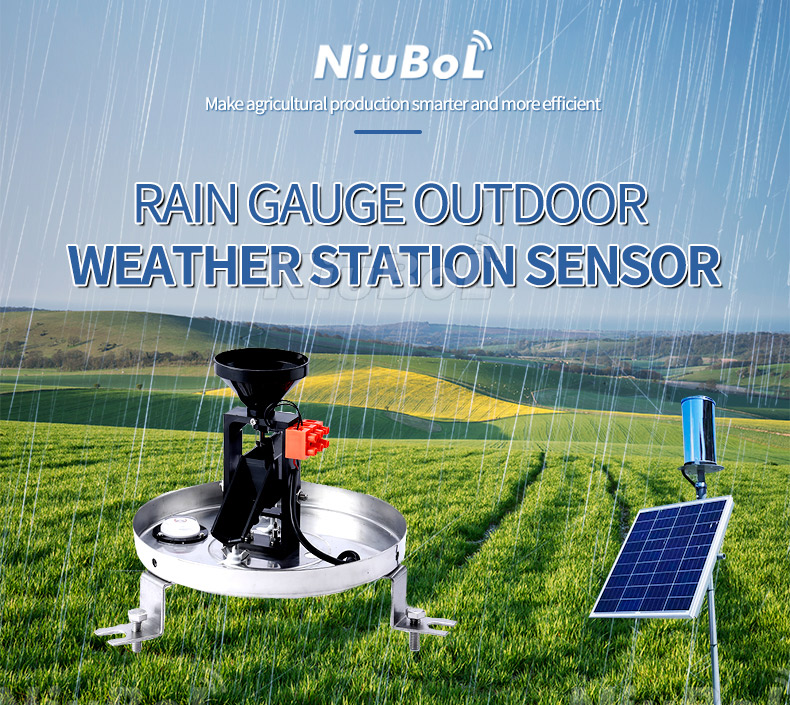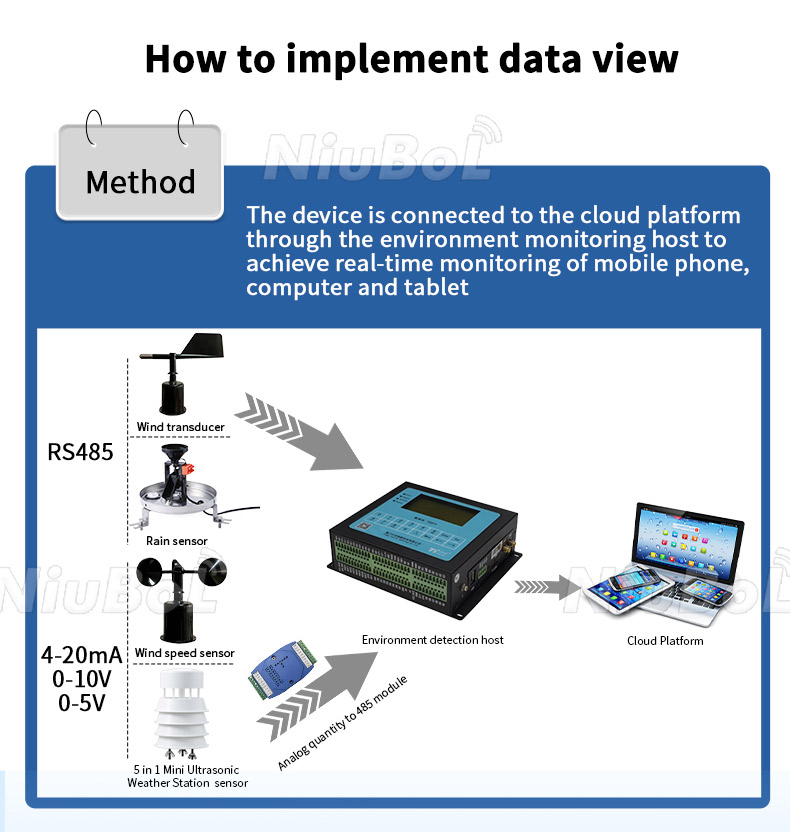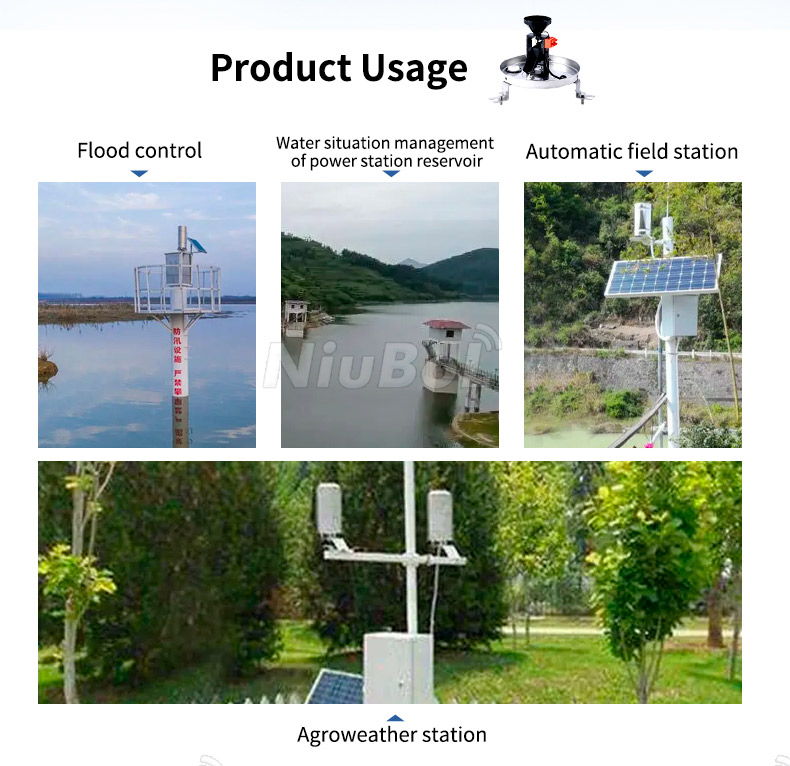

— Blogs —
—Products—
 Consumer hotline +8618073152920
Consumer hotline +8618073152920 WhatsApp:+8615367865107
Address:Room 102, District D, Houhu Industrial Park, Yuelu District, Changsha City, Hunan Province, China
Product knowledge
Time:2023-08-06 21:03:57 Popularity:2476
Rainfall and people's daily activities, agricultural economy has a close connection, for crop production yield also has a certain impact.
A rain gauge is an instrument or device used to measure the amount of precipitation (i.e. rainfall). It is used to capture and record the amount of rainfall that falls on the ground for applications such as meteorological observations, agricultural irrigation planning, and hydrological studies.

There are several common types of rain gauges:
Funnel Rain Gauge: The funnel rain gauge is the most common and traditional type. It consists of a cylindrical container and a funnel shaped inlet. When a raindrop falls into the funnel, it flows into the container and the accumulated rainfall is then recorded by means of a scale. The funnel rain gauge needs to be patrolled and emptied regularly and then the data recorded.
Weighing Rain Gauge: A weighing rain gauge uses a load cell to measure the instantaneous weight of rainfall. Rainwater is collected on a special container or scale, and the change in weight is recorded by the load cell to give data on the amount of rainfall. This type of rain gauge is usually more accurate but also requires regular calibration and maintenance.
Inductive Rain Gauge: An inductive rain gauge measures the amount of rainfall by detecting the number of raindrops that land on the sensing area. It uses photocells, vibration sensors, or other technologies to sense the presence of raindrops and convert them into rainfall data.
Laser Rain Gauge: A laser rain gauge uses a laser beam to pass through airborne falling raindrops and calculates the amount of rainfall by measuring how much and when the laser light is scattered by the raindrops. This type of rain gauge usually has high accuracy and sensitivity.

Modern automatic weather stations are usually equipped with automatic recording rain gauges that can record and transmit rainfall data in real time to a central recording system to provide more accurate and timely observations.
Regardless of the type of rain gauge used, proper installation, regular maintenance and calibration are essential to ensure measurement accuracy. This will provide reliable rainfall data to help scientists, farmers, hydrologists and others to make relevant research and decisions.

The rain gauge should be located away from obstructions (e.g. buildings, trees, etc.) to avoid shading and interfering with rainfall collection.
Rain gauges should be installed correctly to ensure that the funnel or sensor inlet is facing upwards to capture falling raindrops.
Rain gauges should be calibrated and maintained regularly to ensure accuracy and reliability. This may include cleaning the rain gauge, checking for sensor malfunction, and performing necessary calibrations.
Through the use of appropriate rain gauges and proper operation and maintenance, accurate rainfall data can be obtained to provide important reference information for meteorological, agricultural, hydrological and other fields, which will help to monitor rainfall at agricultural, forestry and hydrometeorological stations and enhance meteorological services.
Prev:How should you buy an automatic weather station?
Next:Solar Radiation Sensors Play an Important Role in the Meteorological and Energy Sectors
Related recommendations
Sensors & Weather Stations Catalog
Agriculture Sensors and Weather Stations Catalog-NiuBoL.pdf
Weather Stations Catalog-NiuBoL.pdf
Related products
 Combined air temperature and relative humidity sensor
Combined air temperature and relative humidity sensor Soil Moisture Temperature sensor for irrigation
Soil Moisture Temperature sensor for irrigation Soil pH sensor RS485 soil Testing instrument soil ph meter for agriculture
Soil pH sensor RS485 soil Testing instrument soil ph meter for agriculture Wind Speed sensor Output Modbus/RS485/Analog/0-5V/4-20mA
Wind Speed sensor Output Modbus/RS485/Analog/0-5V/4-20mA Tipping bucket rain gauge for weather monitoring auto rainfall sensor RS485/Outdoor/stainless steel
Tipping bucket rain gauge for weather monitoring auto rainfall sensor RS485/Outdoor/stainless steel Pyranometer Solar Radiation Sensor 4-20mA/RS485
Pyranometer Solar Radiation Sensor 4-20mA/RS485
Screenshot, WhatsApp to identify the QR code
WhatsApp number:+8615367865107
(Click on WhatsApp to copy and add friends)
